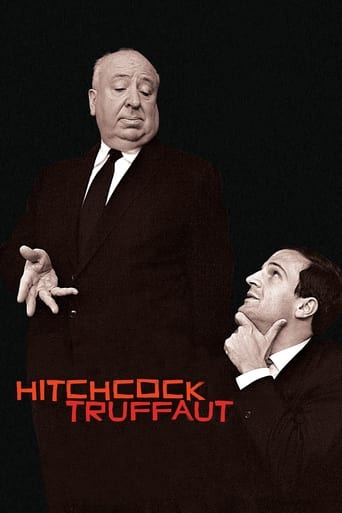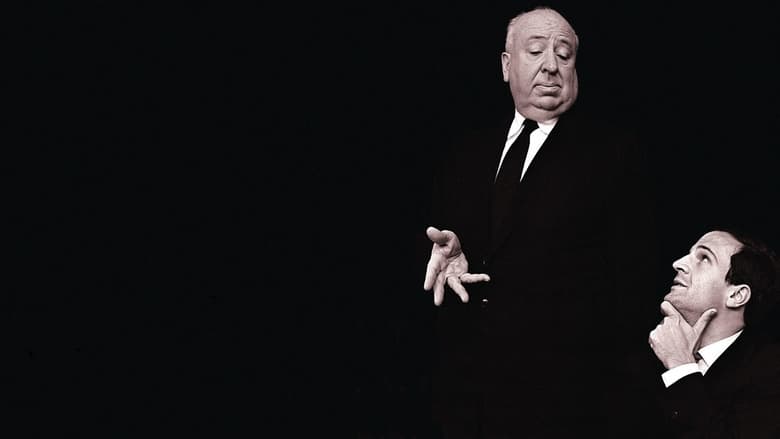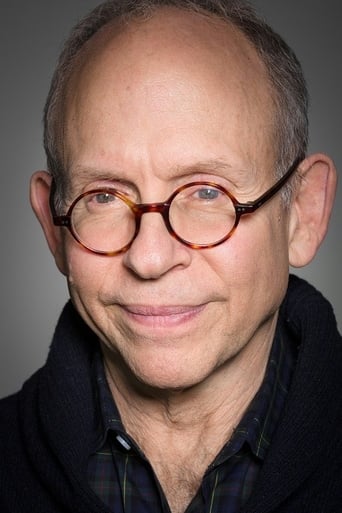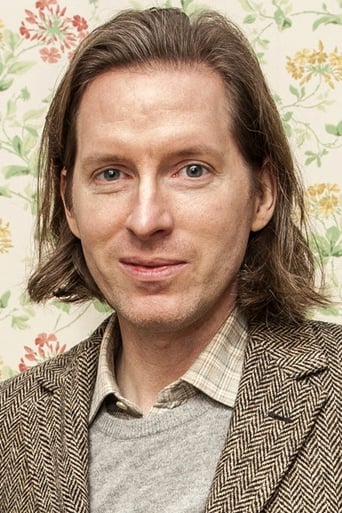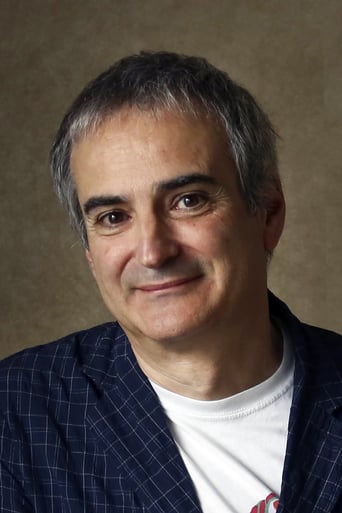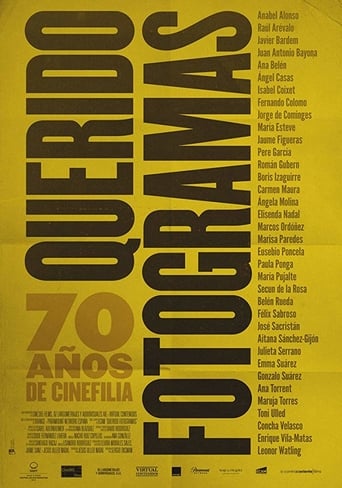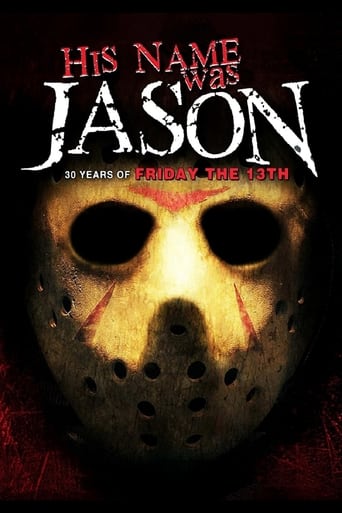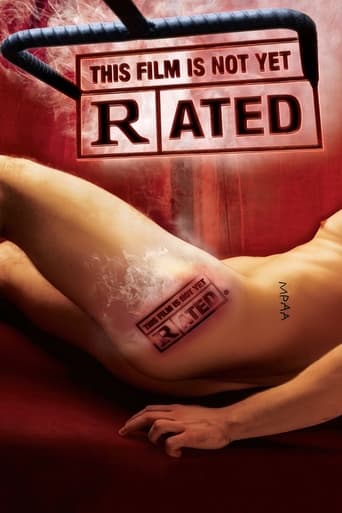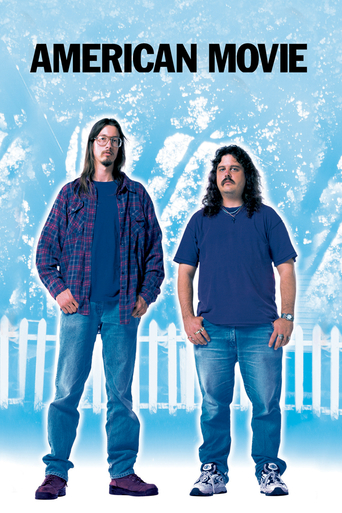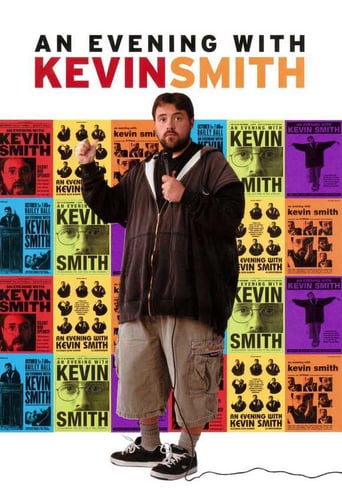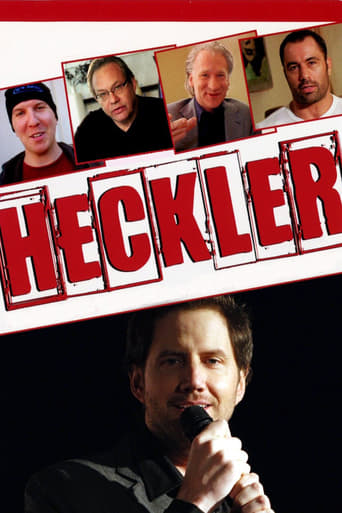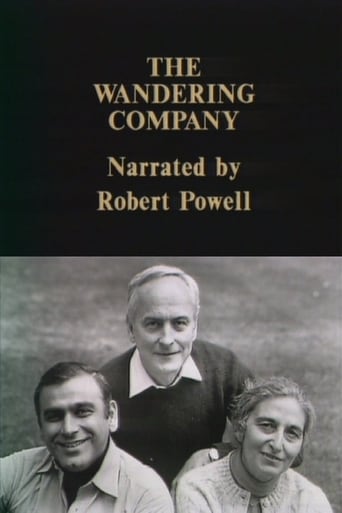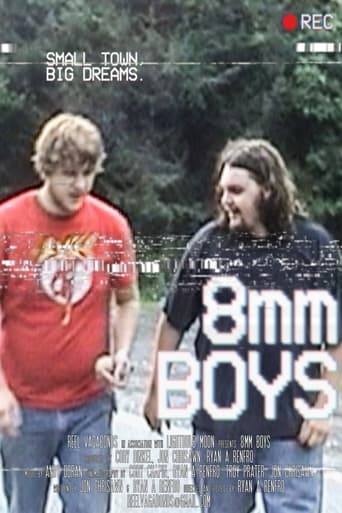Hitchcock/Truffaut (2015)
Filmmakers discuss the legacy of Alfred Hitchcock and the book “Hitchcock/Truffaut” (“Le cinéma selon Hitchcock”), written by François Truffaut and published in 1966.
Watch Trailer
Free Trial Channels
Cast


Similar titles
Reviews
Very disappointing...
Am i the only one who thinks........Average?
Through painfully honest and emotional moments, the movie becomes irresistibly relatable
The movie is wonderful and true, an act of love in all its contradictions and complexity
We can not overlook this title because of the admiration we feel for these two directors. And when we understand that it comes about also for a book our respect has already risen to the highest possible extent.Documentary filmed tape showing the desire of Truffaut to get acquainted with the great Hitchcock.Ultimately, both directors meet and they develop a friendship. To a large extent this unusual relationship influenced Truffaut in his future work.As analysts of the films of Hitchcock are invited legends in the film business as Scorsese, Linklater and many others. If you're a fan, do not pass by this title.My blog: http://vihrenmitevmovies.blogspot.bg/
The Greatest Story Hitchcock Ever Told HITCHCOCK/Truffaut; Document, UK. 2015. director Kent Jones. 78 minutes. Viewed on Saturday afternoon in the little tent at Sodankylä Midnight Sun Film Festival June 2016. Makes you want to read and devour the celebrated Truffaut book on Hitch ASAP. Fantastic film. Great shots of Hitchcock film posters. Sharply selected excerpts from Hitchcock films. Opens with a stark still shot of actress Sylvia Sidney in "Sabotage", 1936, and takes off from there on a whirlwind tour of the director's career and obliquely some, but not too much, of his personal life.Comments by Scorcese, Schrader, Wes Anderson, Peter Bogdanovitch, Olivier Assayas, Arnaud Desplechin, Kiyoshi Kurosawa, David Fincher and even young Jean-Luc Godard, among others. All indicating how they were influenced by Hitchcock one way or another. Kiyoshi speaks in Japanese, the French directors in French. Subtitles in Finnish (natch)...Many shots of Hitchcock as a young man in London, not yet as rocky-poly as he became later. Actually, not a bad looking if slightly portly young man on a roll. The importance of his wife in the background. Throughout his career he consulted with her regularly on all of his films although she was only credited officially in a few of the early ones. He is invited to Hollywood. Has no interest in Tinseltown but is itching to get into a fully equipped Hollywoid studio.One of the high points of the film is an extensive discussion of the making of PSYCHO, it's social impact in 1960 (people were literally screaming in the theaters!) and a detailed analysis of the construction of the infamously famous shower scene in which ultra sexy Janet Leigh is stabbed to death by ultra-psycho Anthony Perkins. This discussion of the making of that flabbergastingly powerful scene by the master himself could be excerpted and show on its own as a complete independent master class in filmmaking. Mr. Jones's magnificent 78 minute film about the making of a book is, in fact, a Master Class in documentary filmmaking, and on its own justified this trip to the upper reaches of Finland. Hats off -- Bravo! -- I want to own this film so I can watch it over and over endlessly.Among other things it reminds me of my own relationship to Hitchcock over the years. As a youth I saw many of his films routinely when they came out at my neighborhood theater but only thought of them as great entertainment, not as Great Art. It was only when I was a student of linguistics at UCLA that I met many students from the film department who worshiped him as a true artist and a creative genius that my views began to change.At the Pacific Film Archive in 1975 I saw every film in a complete Hitchcock retrospective arranged by Tom Luddy who later founded the Telluride film festival. It was at this time that I truly began to understand the difference between film as entertainment and film as art and how the two can merge without contradiction simultaneously satisfying the intellect as well as the need for fun and distraction.Truffaut himself is, of course, a major character in this film with live and still footage of Hitchcock as well. Many stills are shown from the three day interview in Hitchcock's office at Universal studios in 1962 which served as the basis for the book --with Truffaut, Hitchcock and a woman interpreter -- Truffaut didn't know English nor did Hitchcock know French. Yet the master recognized Truffaut as an upcoming talent and a worthy interviewer. The Point is made that they were of different generations but each was cognizant of film as art and respected the other. Although at the time of the interviews, 1962, Truffaut had only made three films, he was already recognized as a major new director of international importance. In a late ceremonial speech at the Hollywood Oscars Truffaut, underlining the respect in which Hitchcock was held in France as opposed to the cretin like lack of respect in America, Truffaut states a bit bluntly: "In America you call him "Hitch" ~~ in France we call him Monsieur Hitchcock!" --To the very end Monsieur Hitchcock wavered between seeing himself as primarily entertainer or primarily artist but there is no doubt that he was most interested in connecting with and manipulating the emotions of the audience. So, in a sense he was above all a master of mass psychology --another point subtly and effectively made in this exceptional study of an exceptional film career.Hitchcock dies on April 29, 1980 at age 81, and most surprisingly Truffaut less than four years later, on October 21, 1984, at the untimely age of 52 of a brain tumor. Hitch's career was over but Truffaut still had untold amounts of offerings in store. His book on Hitchcock and this film about the book and the man behind the book are now part of his deathless contribution to the history of Cinema.
HitchcockTruffaut is a documentary about director Alfred Hitchcock inspired by the book of the same name produced by François Truffaut shortly before his death in the early 1980's. The documentary shows pictures of Truffaut and Hitchcock during the course of Truffaut's extensive interview with Alfred Hitchcock as well as frames from some of his greatest films. This film provides a great understanding of Hitchcock as an artist or "auteur", a term associated with great directors who told their stories using the medium of film, not simply shooting actors performing a story. The visuals for Hitchcock were the essence of his art. He planned the sequence of a movie scene by scene and then used each scene in a series to make the film. As one of the interviewees pointed out, he "wrote" the story using the camera. We see modern directors, particularly Martin Scorsese and Peter Bogdonavitch, commenting on the artist's method of filmmaking. Scorsese saw Hitchcock as a ground-breaker who brought about a new sense of what film was about and freed it from the staid conventions that had grown up around it. Hitchcock himself was trained in filmmaking during the silent era when movies did not rely on sound but told the stories through the visuals. It was very revealing to see works like Saboteur, Vertigo and Psycho analyzed by showing the visual imagination behind the scenes that gripped audiences in each of these works. There was a great friendship between Hitchcock and Truffaut. Truffaut greatly respected and elevated the stature of the man, who had been overlooked to a large extent by Hollywood, which failed to give him an Oscar until he received a special award near the end of his life. Of course Hitchcock was very successful but his true artistry was overlooked by his huge audience, which didn't see the brilliant imagination behind the camera. This is a great documentary that anyone interested in movie making would benefit from viewing.
The only section missing in the film is a discussion of the MUSIC in Hitchcock films especially the work and career of BERNARD HERMANN! Neither director touched on the scores for VERTIGO, PSYCHO, or THE BRIDE WORE BLACK. Others like WAXMAN and TIOMPKIN were also neglected! Soundtracks are an integral part of both director's work! Shame on you! Also there was no discussion of the score for TORN CURTAIN! Why no Hermann score and a substitute for one by by John Barry? You can write an entire book on film noir music or THE SOUNDS OF DARKNESS. Think about PSYCHO and the "shower scene" without music. It loses its chilling effect. What about James Stewart hanging from a roof gutter in VERTIGO? And that haunting "love theme" in VERTIGO, when Stewart is following Kim Novak in his car and the crescendo of waves breaking against the shore when they finally embrace? I can cite many more moments where music was crucial to a scene in Hitchcock's work, too many to enumerate here. I just had wished the directors and filmmakers would have discussed this important phase of both director's work. Dr. Ronald Schwartz at [email protected] Manhattan

